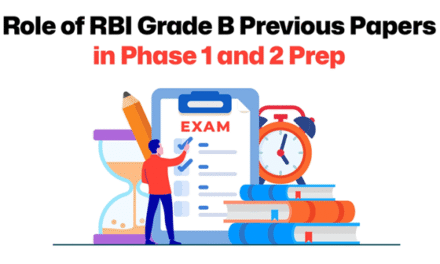In today’s rapidly evolving tech landscape, the demand for versatile and skilled professionals is higher than ever. Among these, the full stack developer course stands out as a crucial pathway for aspiring and experienced developers alike. A Java Full Stack Developer is a highly sought-after professional capable of handling both front-end and back-end development, ensuring seamless integration and robust application performance. As we look towards 2025 and beyond, certain skills will become paramount for anyone aiming to excel in this dynamic field. This blog post will delve into the essential competencies that will define the top Java Full Stack Developers.
The Foundation: Core Java and Backend Expertise
At the heart of Java full stack development lies a deep understanding of the Java programming language itself. This includes mastering core Java concepts such as object-oriented programming (OOP), data structures, algorithms, and multithreading. Beyond the basics, proficiency in Java frameworks is critical. Spring, particularly Spring Boot, has become the de facto standard for building enterprise-grade applications due to its convention-over-configuration approach and powerful features like dependency injection and aspect-oriented programming. Knowledge of other frameworks like Hibernate for ORM (Object-Relational Mapping) is also highly beneficial for efficient database interaction.
Database Management
A full stack developer must be adept at working with various databases. This involves understanding both SQL (e.g., MySQL, PostgreSQL, Oracle) and NoSQL (e.g., MongoDB, Cassandra) databases. Skills include designing database schemas, writing efficient queries, managing transactions, and optimizing database performance. The ability to choose the right database for a given application and integrate it seamlessly with the backend is a key differentiator.
APIs and Microservices
The modern application landscape is increasingly driven by APIs (Application Programming Interfaces) and microservices architecture. A top Java Full Stack Developer must be proficient in designing, developing, and consuming RESTful APIs. Understanding how to build scalable and resilient microservices, including concepts like service discovery, load balancing, and inter-service communication, is essential for
building complex, distributed systems. Knowledge of API security best practices, such as OAuth and JWT, is also crucial.
The User Interface: Frontend Prowess
While Java traditionally dominates the backend, a full stack developer must also possess strong frontend skills to create engaging and responsive user experiences.
HTML, CSS, and JavaScript
The foundational trio of web development remains indispensable. HTML provides the structure, CSS handles the styling and layout, and JavaScript brings interactivity to web pages. A solid grasp of these technologies is non-negotiable.
Modern JavaScript Frameworks
Beyond vanilla JavaScript, proficiency in at least one modern JavaScript framework is vital. React, Angular, and Vue.js are the leading choices, each offering powerful tools for building complex single-page applications. Understanding component-based architecture, state management, and routing within these frameworks is key. TypeScript, a superset of JavaScript that adds static typing, is also gaining significant traction for its ability to improve code quality and maintainability.
Responsive Design and UI/UX Principles
With users accessing applications across a multitude of devices, responsive design is paramount. Developers must be able to create interfaces that adapt seamlessly to different screen sizes and orientations. A basic understanding of UI (User Interface) and UX (User Experience) principles will enable developers to create intuitive and user-friendly applications, even if they are not dedicated UI/UX designers.
Beyond Code: DevOps, Cloud, and Soft Skills
In addition to coding, a top Java Full Stack Developer needs to navigate the broader ecosystem of software development.
Version Control
Git and platforms like GitHub or GitLab are fundamental for collaborative development. Proficiency in version control operations, including branching, merging, and pull requests, is essential for managing code effectively in team environments.
DevOps and CI/CD
Understanding DevOps principles and continuous integration/continuous delivery (CI/CD) pipelines is increasingly important. Familiarity with tools like Docker for containerization, Kubernetes for orchestration, and Jenkins for automation enables developers to streamline the deployment process and ensure rapid, reliable software delivery.
Cloud Platforms
Cloud computing has revolutionized application deployment and scaling. Experience with major cloud providers like AWS, Azure, or Google Cloud Platform is highly valuable. This includes knowledge of deploying applications, managing cloud resources, and leveraging cloud-native services.
Soft Skills
Technical prowess alone is not enough. Effective communication, problem-solving, critical thinking, and adaptability are crucial soft skills. Full stack developers often work in cross-functional teams, requiring strong collaboration and the ability to articulate technical concepts clearly to non-technical stakeholders. The ability to continuously learn and adapt to new technologies is also vital in this fast-paced industry.
Conclusion
The journey to becoming a top Java Full Stack Developer in 2025 and beyond requires a comprehensive skill set that spans both frontend and backend technologies, coupled with an understanding of modern development practices and essential soft skills. Investing in a Full stack Java course that covers these areas will provide a solid foundation for a successful and rewarding career in this exciting field. By continuously honing these skills, developers can remain at the forefront of innovation and contribute significantly to the creation of impactful software solutions.





